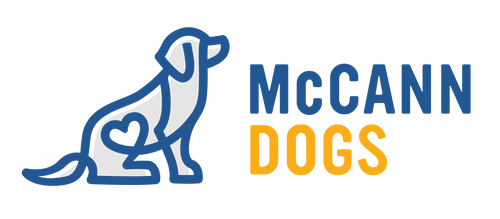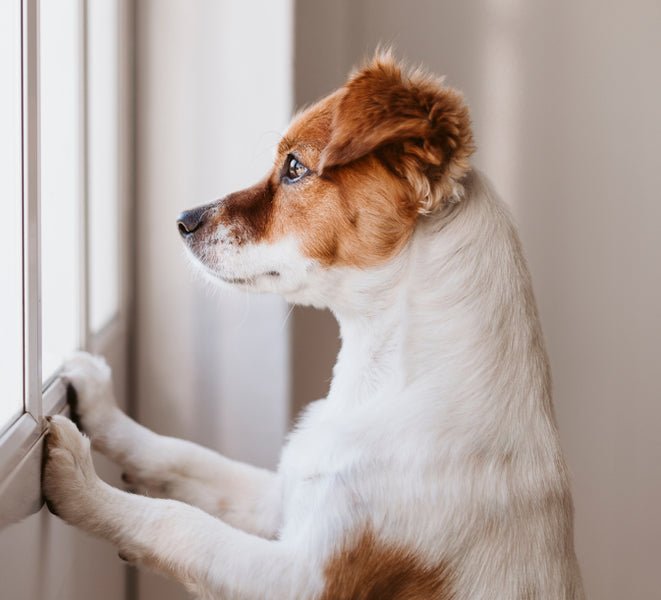Transition can be tough for both humans and animals. At the start of the pandemic, I wrote an article, "How Isolation will Affect your Dog." It was a guide to ensure our pups didn't get too accustomed to us being home, since returning to work seemed like it was just around the corner. Here we are 2 years later... Who would have guessed?!
Now that our dogs have gotten used to us being around all day, some of us are facing a transition back to working outside of the home again. The pandemic interrupted our normal work schedules and a lot of dogs got used to us being home 24/7, which may have felt like they scored, but now that’s about to change again.
So, how will it impact your dog when you go back to working outside of the home?
Where did you go?
Dogs who’ve gotten used to your company all day long will have to get used to spending several hours solo. If they're used to a busy home, the quiet house will feel like a drastic difference for them. Maybe you had young kids schooling at home as well. With everyone departing, there will be a very different feel in the house, which can create a lot of anxiety for the unprepared dog.
They may start trying to alleviate that stress by digging, barking, howling, chewing, or being generally destructive. Noises from outside that were previously drowned out will be more pronounced and may result in your dog nuisance barking in your absence, which could cause issues with your neighbours.
Look objectively at your situation and think about what your dog's new reality will look like. Then, think about how you can help them prepare for this change.
So what can you do?
It's funny.... as I write this article, it actually aligns closely with the advice given in the isolation article I put together 2 years ago. Dogs are creatures of habit and routine, much like us. They can also adapt, much like us. What they can't do is take a sharp, about-face with that routine and just roll with it. Of course, there are dogs that will be the exception to this. Some old Steady-Eddy types can roll with anything, but the majority of dogs will feel confused and anxious if they wake up tomorrow to a world that is suddenly different.
Here are a few tips to help ensure they roll with the transition.
Keep Rituals and Routines in Place
As you prepare to head back, think about what the day will be like for your dog. Try to practice what their day alone will look like so that when you do return, it won’t be a giant shock to their system.
Keep meal and potty times on the schedule you’ll be able to accommodate when you’re at work. Walk them at times that are realistic to accommodate when you have to commute back to work.
You may need to find a friend or hire a dog walker for a short period to help ease this transition. If you go this route, be sure to communicate your goals with the dog walker so they can provide feedback to help you plan. If things are calm when they arrive, you can adjust the time they come to a bit later in the day. After a few weeks of slowly moving the time, you will likely be able to cut it out altogether.
If you were to go back to work without this transition, your dog may feel overly stressed and uncomfortable throughout the day. Adult dogs might even develop destructive behaviours or start having accidents in the home again if they're left too long as a sudden change.
Will they be crated while you are at work? If so, be sure they are accustomed to being in the crate for at least the duration you’ll be gone. Going from no time in the crate to a full workday is a big transition that you'll want to accomplish over a week or two. If you're able to do so before heading back, it will make your dog's life that much easier when you're gone. You may need to make provisions to ease the transition if you don't have enough time to work it out. This is another place where a temporary helper will be a life-saver.
Offer the same quiet time as you prepare
If your pup will be home solo, be sure they are crated in a different room as you prepare. Spend time leading back to your return to work crating your dog in a different room. You might find some background noise, like talk radio or tv, helps them relax as it drowns out noise from outdoors and the empty house.
How should I leave?
Try to vary the routine that surrounds your exit, especially for the first few weeks. Dogs are really good at figuring out chained events. When you pick up your keys, put on your boots and open the door every time you leave the home, your dog will start to see those cues to mean they’re going to be alone. In a lot of cases, they will become cues that end up creating anxiety for your dog.
Pick up your keys a few minutes early to avoid associating the jingle with the front door. Put on your coat and then walk around the house before leaving, etc. Open and close the door several times in the hour before you leave.
A bit of variety will go a long way to helping your dog relax as they prepare for your absence.
What about your return?
When you come home after a long day away, your dog will be thrilled to see you again. Making a big deal of leaving or returning home can often make things harder for our dogs in the long run. As difficult as it is to not return their enthusiasm, it isn't in our dog's best interest for our arrival to be calm. Try to make these transitions uneventful. Greetings that are too enthusiastic often add to feelings of anxiety that are related to separation simply because our enthusiasm makes it so noteworthy and our dogs end up overly focused anticipating our arrival back home.
Remember, the goal is for them to let life roll. They don't need to feel anxious when we're away, they need to put their paws up and relax -- content with a quiet house or a busy one!
Until next time,
Happy training and best of luck with your return to the office!

